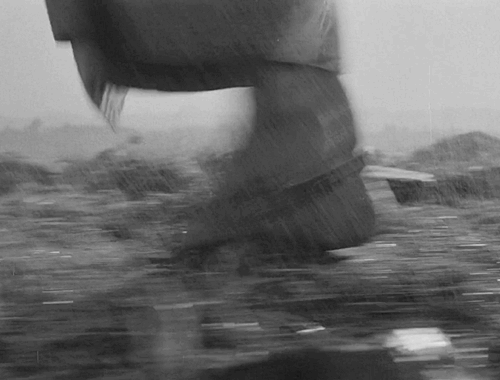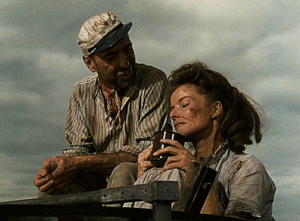The Burmese Harp (1956)

…………………………………………………
The Burmese Harp Movie Review
The Burmese Harp is a 1956 Japanese anti-war drama film directed by Kon Ichikawa and starring Rentaro Mikuni and Shoji Yasui. It is a true masterpiece of a movie.
………………………………………………….
“The soil of Burma is red,
and so are its rocks!“
…………………………………………………..
…………………………………………………..
First and foremost, this film surprised me with the overall narrative. Never had I expected such a slow, artistic, non-war movie from a film set just after WWII. Furthermore, its refreshingly humanistic and anti-nationalist perspective was admirable.
The film offers a great look into the Burma Campaign as these soldiers sing and raise morale in the area during the war. Then, the war is over and the British ask the protagonist to talk down a group of Japanese soldiers to surrender, but they stubbornly refuse and end up dying. This sequence was immensely important as it portrayed realistically the very stubborn machismo of Japanese soldiers and their pride.
Eventually, Mizushima dons the monk’s robes and goes to tend to all the casualties across the countryside while his platoon desperately searches for him. This is the crux of the film’s second half, which is the section that surprised me the most with its pleasant leisurely pace, spiritual themes and one incredible anti-war message.
The Buddhist themes are fantastic, making this movie one of the most spiritual cinematic experiences in film history. I will get more into the audio-visuals later, but simply seeing the strong will of Buddhist monks as they brave through this horrendous war and retain their spirit and identity was so inspirational. The film’s depiction of Burmese stupas as well as the titular harp made the movie culturally highly diverse, which is commendable given the film’s age.
…………………………………………………..
…………………………………………………..
Mizushima is inspiring as the central figure. This man is the pure representation of humanity in its best form and his awakened spirituality being explored through his trekking quest around the countryside made for this morbid, but spiritual adventure that is unlike any other in the history of movies.
His relationship with the other soldiers made for this wonderful comradeship and deep respect among his peers. In particular, the captain’s search for him was deeply moving as he really cared for the guy. The acting is strong across the board, but obviously the standouts are Mikuni and Yasui. The movie also benefits from strong humorous elements, especially stemming from the granny character who acts as a comic relief of the piece. Her trading prowess made her an instantly iconic, hilarious personality.
The Burmese Harp is staggeringly cinematic. In terms of its audio delights, the film makes great use of the titular harp instrument and some of these scenes where the soldiers just sing and dance were among the highlights of the picture. The overall score is also moving and very grandiose. The direction from Kon Ichikawa is also incredible. The fact that this film lost the first foreign Oscar to a Fellini movie is atrocious.
As for its visuals, they perfectly complement the movie’s spiritual themes. Portraying the ocean and the desert represented the ell-encompassing sweep of the narrative and its messages while the film’s imagery of the full moon, the stupas and the monk trekking the desert made for instantly iconic religious iconography.
…………………………………………………..
…………………………………………………..
This is an early Japanese feature that is entirely shot outdoors, which made for a truly admirable feat of filmmaking. The editing and pacing are also tremendous and the film’s message is truly beautiful. The final speech may be didactic to some, but to me it was deeply moving and timeless in its important anti-war sentiment.








Kon Ichikawa made a remake of his own movie in 1985 (Titled of course “The Burmese Harp” – Biruma no tategoto) which was more neditative then the first (and longer) but also beautiful and touching.
It will be interesting to know what you thought about these two movies and the fact that a director is doing a remeake to his own movie 🙂
(that happened several times in movie history).
I haven’t seen the remake, but I am interested. As for remakes by the same directors, I don’t have anything against them as long as they are updated or at least altered or improved in some way, but the first Burmese Harp is so incredible that I can hardly see the remake being in any way an improvement upon it.